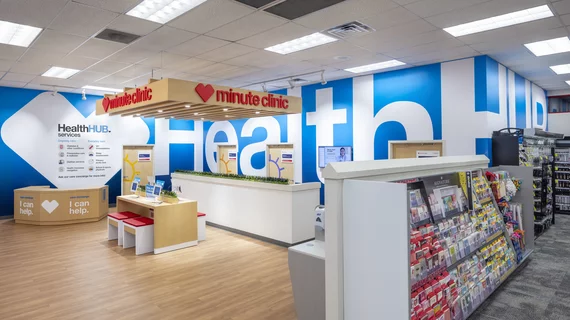CVS to expand HealthHub concept
Amid an ongoing court review of its $69 billion merger with health insurer Aetna, CVS Health isn’t slowing down in its plans to expand, according to executives who spoke at the company’s investor day on June 4.
The investor day comes on the same day a court proceeding begins to review CVS’ transaction with Aetna, one of the nation’s largest health insurers. CVS operates nearly 10,000 retail locations, 1,100 walk-in clinics, and is a pharmacy benefit manager with about 94 million plan members, in addition to its other pharmacy care businesses and services. It closed its acquisition of Aetna late in 2018 after receiving approvals from regulators, but a U.S. District Court judge is reviewing the deal for antitrust issues this week.
Despite this threat, CVS Health began integrating with Aetna at the start of 2019, introducing new concepts, including rolling out a pilot test of its HealthHub stores in Houston. The stores aim to provide more healthcare services, digital tools and on-demand sites within CVS locations to serve customers. By the end of 2021, CVS expects to expand the HealthHub concept to 1,500 locations in three more markets, CEO Larry Merlo said during the investor presentation.
“These stores bring to market a new retail engagement model that offers healthcare services in a more convenient, more accessible and more customer-focused manner,” Merlo said.
Merlo also highlighted that there are now 72 million people enrolled in CVS’ text messaging program, and the company plans to continue building out technology infrastructure.
“Uniting CVS Health with Aetna provides us direct access to an unparalleled breadth of data,” Merlo said. “We are creating a new data ecosystem to protect this data as well as leverage it across our organization to provide a holistic view of the patient, garner insights into the next best action to improve their health and determine how to best communicate with the patient. Our aim here is simple: to turn data into insights and insights into action.”
For “products and service offerings in development and on the table today,” Merlo expects approximately $850 million in value creation in 2022 and $2.5 billion longer-term.
With regards to integrating with Aetna, synergies are expected to reach $800 million in 2020, and up to $900 million in 2021 and beyond, above the original prediction of about $750 million. Further streamlines through a new initiative called Enterprise Modernization will achieve cost reductions between $1.5 billion and $2 billion in 2022, Merlo stated.

